Champions League final: Tottenham vs Liverpool a battle of two teams who believe winning is their destiny
The drama and histrionics that has come on their individual paths to the final has each club believing victory in Madrid is their fate, but there are many other elements that will decide the European champions

Your support helps us to tell the story
From reproductive rights to climate change to Big Tech, The Independent is on the ground when the story is developing. Whether it's investigating the financials of Elon Musk's pro-Trump PAC or producing our latest documentary, 'The A Word', which shines a light on the American women fighting for reproductive rights, we know how important it is to parse out the facts from the messaging.
At such a critical moment in US history, we need reporters on the ground. Your donation allows us to keep sending journalists to speak to both sides of the story.
The Independent is trusted by Americans across the entire political spectrum. And unlike many other quality news outlets, we choose not to lock Americans out of our reporting and analysis with paywalls. We believe quality journalism should be available to everyone, paid for by those who can afford it.
Your support makes all the difference.For two clubs that have gone through the most riotous of routes to Madrid, the mood in both camps over the last few days has been surprisingly - if portentously - serene.
Perhaps that’s what football events like miracle comebacks from 3-0 down really do to you. They give you the faith of true believers. They give you the faith that the moments you have come through are of such magnitude that they simply have to mean something more and lead somewhere greater.
The grand trophy at the end of that path probably meant more to Sir Matt Busby than any other manager of an English football club, and those who knew him used to say that - despite all the genuine tragedy and trauma he endured to win it, of a level way beyond sport in Munich - his deep Catholic faith meant he never doubted. The Manchester United great had the quiet but commanding assurance that came from the belief he was part of a greater journey already set.
A similar spirit radiates off these clubs now. Theirs is not a faith in God, though. It is a faith in themselves.
That is what the 65th Champions League final represents. A duel of the fates.
Destiny
There can rarely have been a European Cup final in history where both sides had come through such histrionics to get there, where there have been such suggestions of destiny calling. You could even say this ties into the fact there has rarely been a final where both clubs have gone so long without winning their domestic title - and thereby the old-fashioned way into the competition - but that in itself has only further imbued these sides with that sense of destiny.
For Liverpool, the very failure to win this season’s domestic title has actually bolstered the belief around the Champions League final.
The feeling around the squad - and the support - is that all those wins, all those moments, all that emotion, all that energy have to have some greater meaning; that it can’t just end with nothing. Jurgen Klopp has thereby fired the Liverpool squad with a sense of seizing an opportunity rather than fear of again squandering one. It greatly stoked that fire that, just when belief was subsiding Manchester City would ever drop points in the title race, Liverpool succeeded in something as unbelievable as the comeback against Barcelona. Gradual acceptance of one fate was aided by belief in another.
There are then the historic stakes, since victory over Tottenham Hotspur would again put Liverpool ahead of Barcelona in terms of outright Champions League victories, finally giving them their sixth and making them the competition’s third most successful club in their own right. A past of such prestige, and a season of such brilliance, have fostered the belief the trophy is theirs.
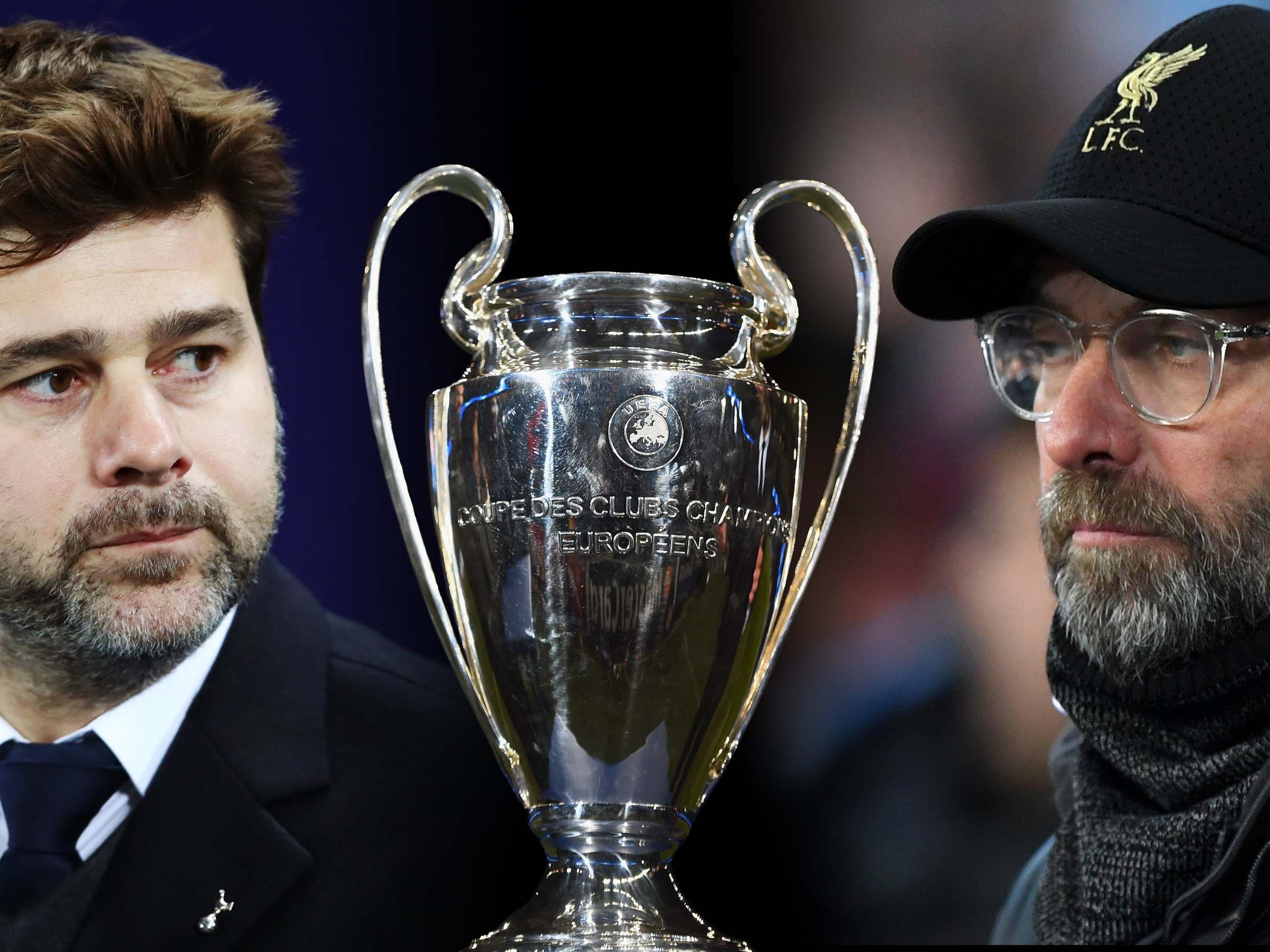
For Tottenham, however, the feeling is that the future is theirs. That they would be the first new European champions in seven years, and 23rd name on the trophy itself, emphasises this. Mauricio Pochettino only last week spoke of how the new stadium, and the step into a first ever Champions League final, represent “the end of an amazing chapter” but also the “start of the next”. This was exactly why the Argentine has spent so much of his five years single-mindedly ignoring “advice” about focusing on the domestic cups, and instead fixating on the two greater trophies. This is where he always wanted to get to. He knows he was on the one true path.
Spurs’ underwhelming domestic league season similarly reinforces this belief. How else to explain the epic nature of their European run - the great escape in the group stage, the wonder of the win over Manchester City, the comeback and climax at Ajax - against that?
It must be because the Champions League just means more. Little wonder Pochettino has been talking up his belief in “universal energy” so much over the past few days. He believes he’s guided by greater forces.
If this is all getting a bit metaphysical, it is important to remember this is merely what frames the final, and what is genuinely mentally empowering the teams as they start it.
What will actually decide it are the real-life tangibles of both. And the reality is that Liverpool are the better team, maybe the best in Europe right now after the City side that beat them to the Premier League by a point.
That very league table proves it. Recent form proves it.
One-country final
It is one of the glories of the Champions League, though, that the final doesn’t always prove it. There are countless examples from its history where the team that has won Europe’s greatest trophy was manifestly not its greatest team. That’s just the nature of knock-out football, and the knock-on effect of one-off games. A season can suddenly go up with a single kick.
This is a nature potentially further distorted by the fact it is another one-country final, the seventh in total and fourth in seven years. That adds a whole other layer of psychology. The greater knowledge of each other ironically gives both teams more to think about.
It still doesn’t distort the reality that Pochettino is the manager who has to think up something different. In charge of the inferior side, he is the one that faces the challenge of conceiving a tactical trick that tilts the game in Spurs’ favour.
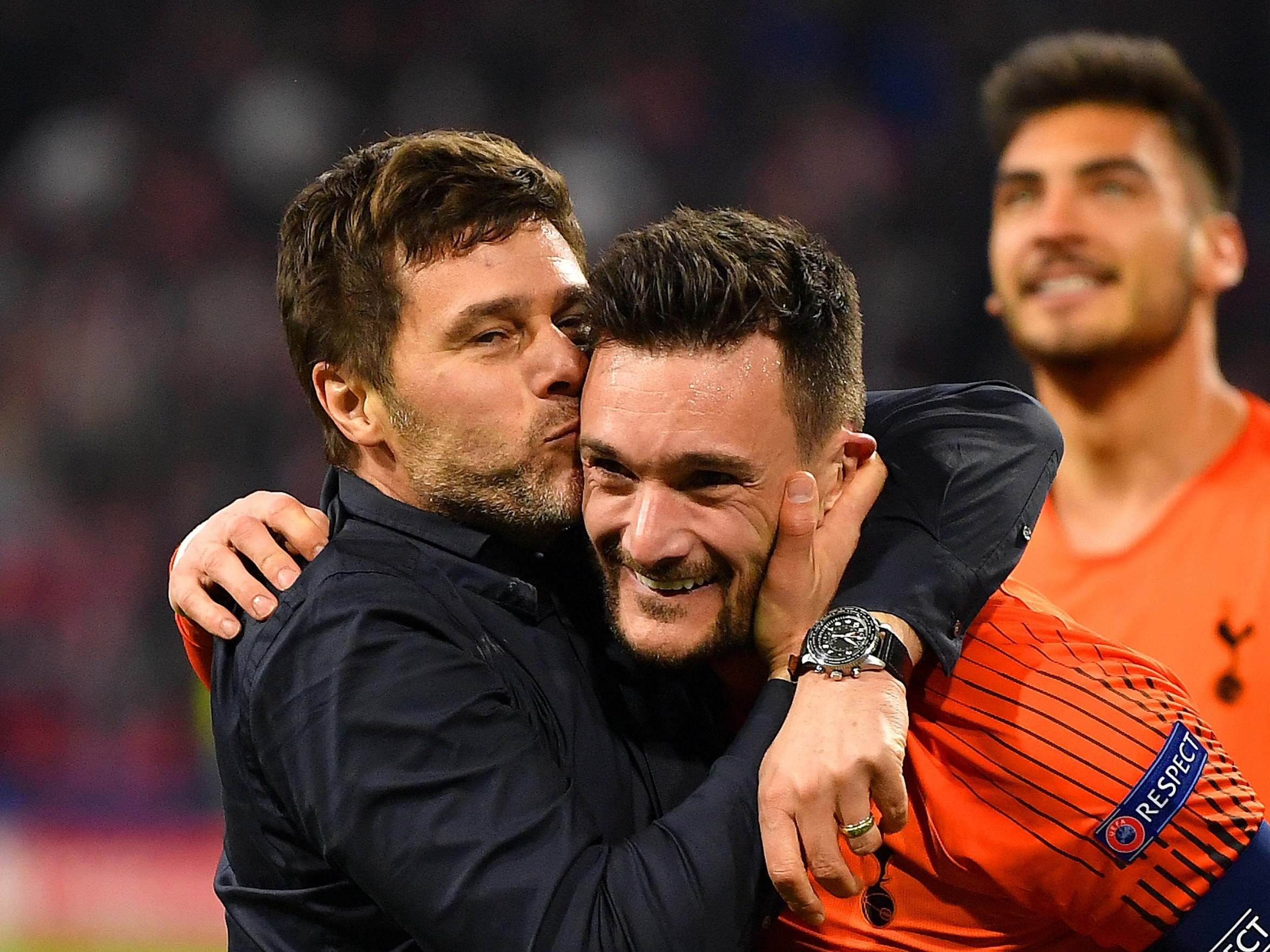
As to what that will be, that is where the true genius that has got his team here comes in, that we lesser football minds can only guess at.
It’s just as well Pochettino has already shown an adeptness for this. A pronounced characteristic of his Champions League career has been left-field decisions, from Son Heung-min at wing-back to the three-at-the-back against Ajax in the semi-finals, before then turning the tie by going from such elaborations to something as rudimentary as sending long balls to Fernando Llorente.
Pochettino did discuss the necessity for such variety in a brilliant interview with El Pais on the eve of that fateful second leg, where he spoke of how Liverpool are a more “predictable” side.
This wasn’t intended as a slight, but was instead praise for they can just play in a way knowing that if they perform to their best their game will win out.
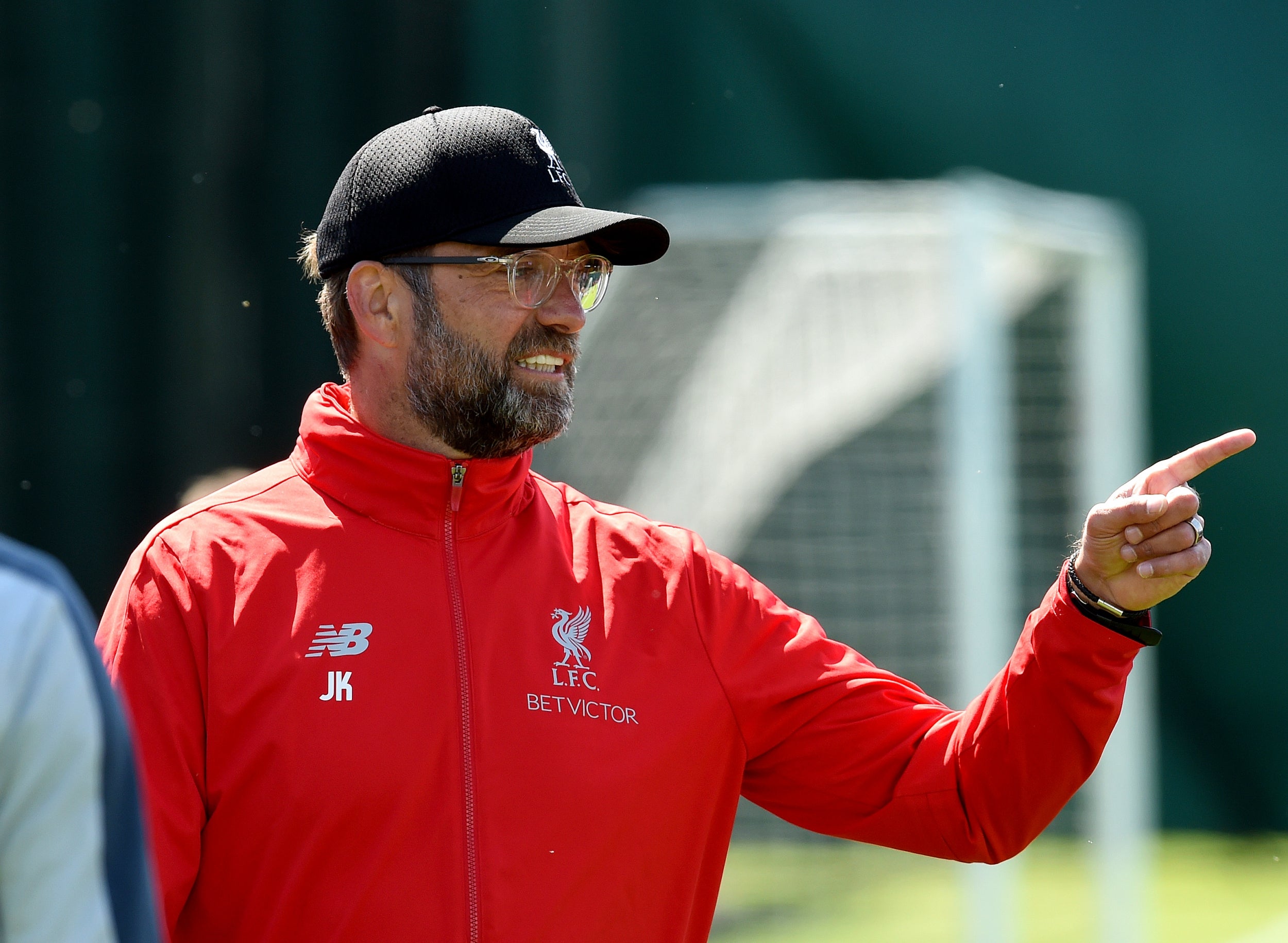
This is also precisely what Klopp has been telling his own players in private. There are no overt tactical tricks necessary there. Play to their potential and they will fulfil their potential, by winning that first trophy of the Klopp era, and the greatest of all.
It is possible, however, they won’t be the only elements distorting this final.
Three-week break
There’s most obviously that long three-week break between the clubs' last game in the league and this grand finale. It represents the same length as the 2018 pre-season after the World Cup, and maybe a greater problem for Liverpool.
They were at full throttle and on the best form before this break, so it would have suited them to just keep going. They were so good that the only possible extra effect of this break is distorting that rhythm. It can't make them better. The challenge for the staff then has been to keep it going, both physically and mentally. That has involved meticulously planned conditioning, and Klopp gradually nuancing the mentality of the team so that they have been relaxed all week but will be raring to go by kick-off on Saturday.
Harry Kane’s fitness
Spurs, by contrast, needed the break. They needed to recharge, both mentally and physically, because their form so contrasted Liverpool’s. They needed a break from that. And they have been recharged. Toby Alderweireld spoke this week of they have trained “like animals”, and they now feel like a “new creature”. They are ready to seize an historic opportunity. Everything can be built up to this, with no disruption.
It’s just that the chance to create that new creature may have led to a new problem. Because while Liverpool have had no major injury concerns, Pochettino has had the biggest possible. Except it’s not that his captain and best player Harry Kane has injured himself, but instead that it has allowed Kane to get fit, but not necessarily match-fit – and that for a player who often needs a few more games than others.
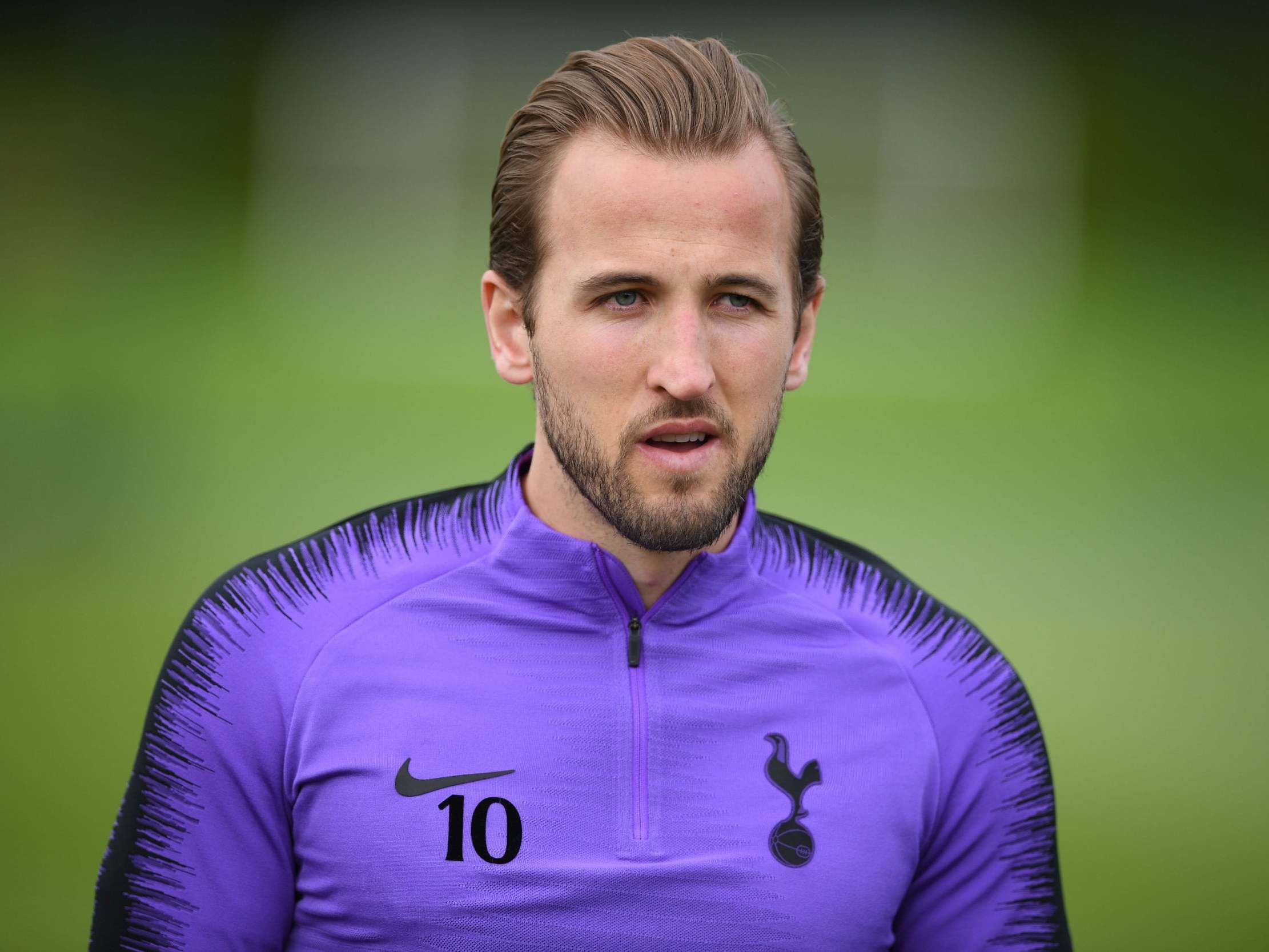
It’s a huge decision, and probably the game's main one, not least for how it will inform the entire tactics of the game. Will it mean removing the pace of semi-final hero Lucas Moura? Will Pochettino take the bravest step of all?
A first trophy
There is then the greater question over the grandest step of all, at least for the managers.
Undercutting the undisputed success and progress of both these charismatic figures over the past few years has been the tedious - but not entirely misplaced - debate about trophies.
Pochettino has never won any at all.
Klopp hasn’t won one at Liverpool. And, perhaps making this question even more pointed for the German, he has lost all of his last six finals. That includes this very fixture last season, against Real Madrid.
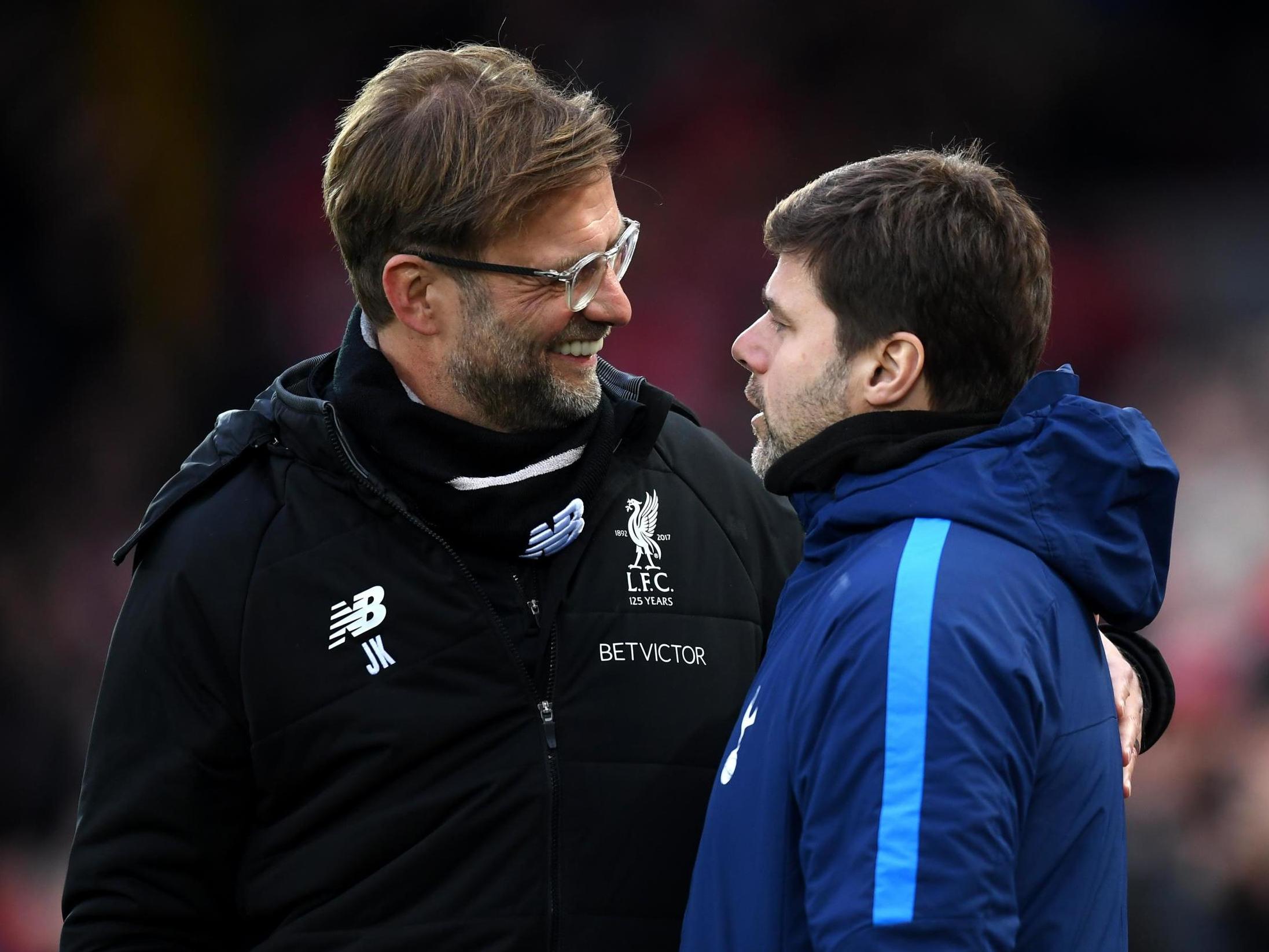
One will banish that debate forever, one will make it worse.
Except, for all that the outside world obsesses about this, it sums up the mood of both managers and both teams that they don’t really consider this at all. It doesn’t concern them, not when fear would be so counter-productive; not when fear would run so counter to the spirit and adventure that have fired them this far.
Not when there’s history to be made. Not when there’s destiny to be fulfilled.
That is just one other reason this is the main theme invigorating this final. It is what both managers, who are both so progressive, will be telling their players beforehand. That it has to all mean something.
And for one of them, everything this season is going to mean the single greatest trophy in the game.
Join our commenting forum
Join thought-provoking conversations, follow other Independent readers and see their replies
Comments